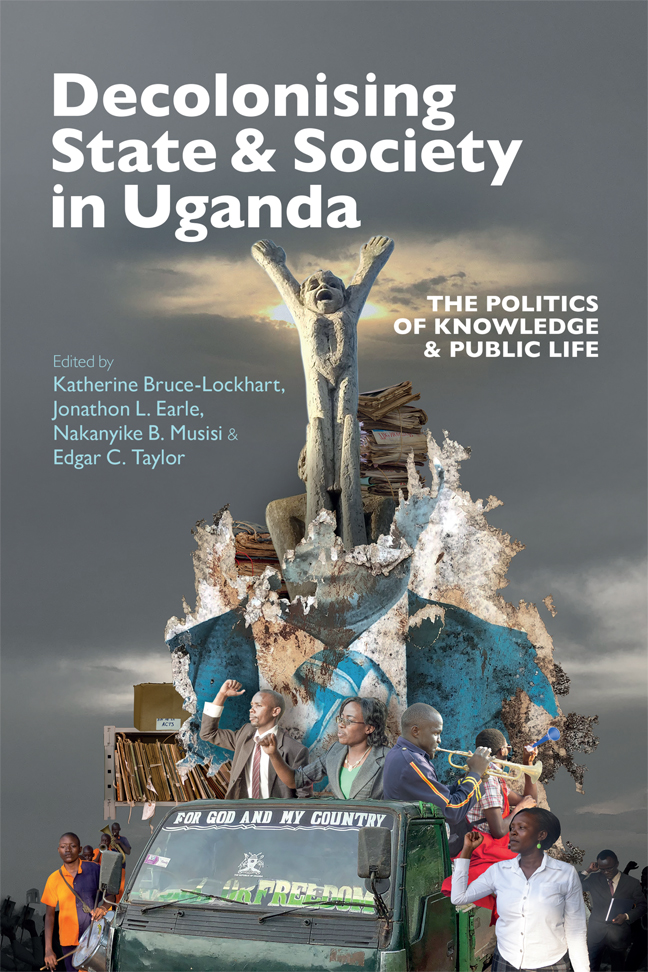1 - Decolonial Dilemmas and Burdened Epistemic Heritages in Names and Naming Among the Bakiga
Published online by Cambridge University Press: 15 February 2024
Summary
Names comprise an archive of knowledge, memory, and a sense of community expressed through language. Language is a window through which one comes to understand the structures of a culture’s philosophy and value system, and the histories of relations that give meaning to things, behaviours, gestures, and names. In this chapter, I am interested in the contemporary meanings of names and meanings among the Bakiga of south-western Uganda. Because I have witnessed structures of colonial and Christian erasures and legacies in my family, I am motivated to set on this analysis as an intellectual and spiritual journey of healing – the negations and disavowals, the dissonance, the brokenness and woundedness – at the intersection of indigenous knowledge and colonial and Christian legacies in my family.
I give attention to names and their meanings in Bakiga culture to understand how and why the indigenous spiritual aspect accorded to names and meanings has been shaped by colonial and Christian legacies. Names among the Bakiga evoke the cosmological grounding through which communities give significance to relations, inter-subjective experiences, epistemic assumptions, historical struggle, and place. Language's position in names and naming is critical as language animates a particular cultural cultivation of self in family and community. The underpinning of this analysis is rooted in the sense that people in their familial and communal locales generate and absorb teachings and meanings, and enact practices informed by histories experienced in their continuities and discontinuities, as families or communities.
Understanding name meanings enacted through language within a culture can illuminate one's family tree and insights about heroic people and heroic acts, or tragic events in a family's history, and might reveal health and political trajectories. Thus, names act as a repository of knowledge creation methodologies. Like many indigenous communities around the world, the Bakiga of south-western Uganda take names and their meanings very seriously. Names are central to their history, culture, wellbeing, community, and language. Language is critical to knowledge creation for the Bakiga, therefore, it is important to analyse how their language, Rukiga, has continued or discontinued to be a source of indigenous knowledge creation in names and naming, and how these dynamics shape their lives. Thus, I proceed on the premise that Rukiga language has shifted from indigenous to colonial meaning-making through names and naming as a result of colonial and Christian influence in Bakigaland.
- Type
- Chapter
- Information
- Decolonising State and Society in UgandaThe Politics of Knowledge and Public Life, pp. 25 - 41Publisher: Boydell & BrewerPrint publication year: 2022

